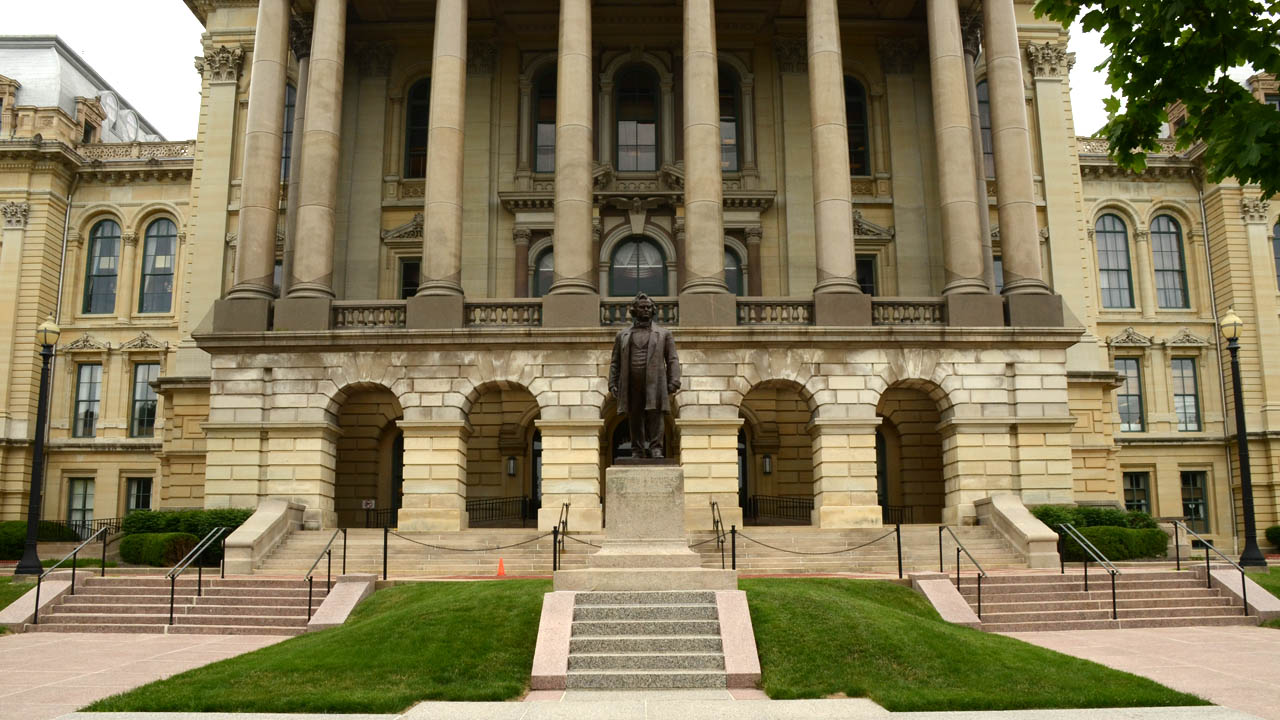
Guns, hemp, and stalking are among the themes of the more than 250 new Illinois laws signed by Governor Bruce Rauner that took effect on New Year’s Day.
We took a look at some of the biggest changes to come out of Springfield in the past year, and how they’ll affect life in the Prairie State in 2019.
Last February, a gunman opened fire on students and teachers at a high school in Parkland, Florida, killing 17 before being apprehended by police. The attack came just a few months after another gunman killed nearly 60 people at a country music festival in Las Vegas. As the shock waves reverberated throughout the country, Illinois state lawmakers filed a flurry of bills to address what many called an “epidemic of gun violence.”
While many didn’t have enough support to make it out of the statehouse, both Republicans and Democrats came together on a few changes that are now state law.
Among those is Senate Bill 3256, which became PA-100-0606. It puts a 72 Hour waiting period in place on all gun purchases in Illinois. Before, only handgun purchases had been subject to that long of a wait, commonly known as a “cooling off” period.
State Rep. Jonathan Carroll, a Democrat from Northbrook, was the bill’s House sponsor. He says heat-of-the-moment purchases can lead to gun violence. With the uptick in gun crimes committed with rifles like the AR-15, Carroll says a longer waiting period was needed to try and stop those crimes before they happen.
“That way people, if they’re gonna make a purchase, have time to think about potential catastrophes that could happen,” he explained. “Data shows us that actually, that kind of waiting period does cut down on those types of shootings.”
Another is aimed at getting guns out of the hands of dangerous people, whether they purchase them or not. State Rep. Kathleen Willis sponsored House Bill 2354, known as the new Lethal Order of Protection law, PA-100-0607. It allows police, family members, or friends of a violent person to ask a court to take away his or her guns for up to six months if they pose “an immediate and present danger“ to themselves or others.
The Addison Democrat says mental health commonly plays a central role in mass shootings.
“Somebody who shoots themselves or does mass shootings has some kind of mental health crisis going on…so this is something that allows people to be proactive,” she said.
Groups like the NRA and even some Republican state lawmakers were concerned the measure was a government overreach. Willis says she worked with them before the bill became law.
“It’s a temporary order, there is due process in it. We worked with them to make sure we had all the checks and balances in there so it would not be abused.”
Those “checks and balances” are in the form of sworn affidavits. Under the new law, anyone who wants one of these types of restraining orders has to first swear to a court that they’re telling the truth about a person, and would be punished if they lie.
Source: www.nprillinois.org
